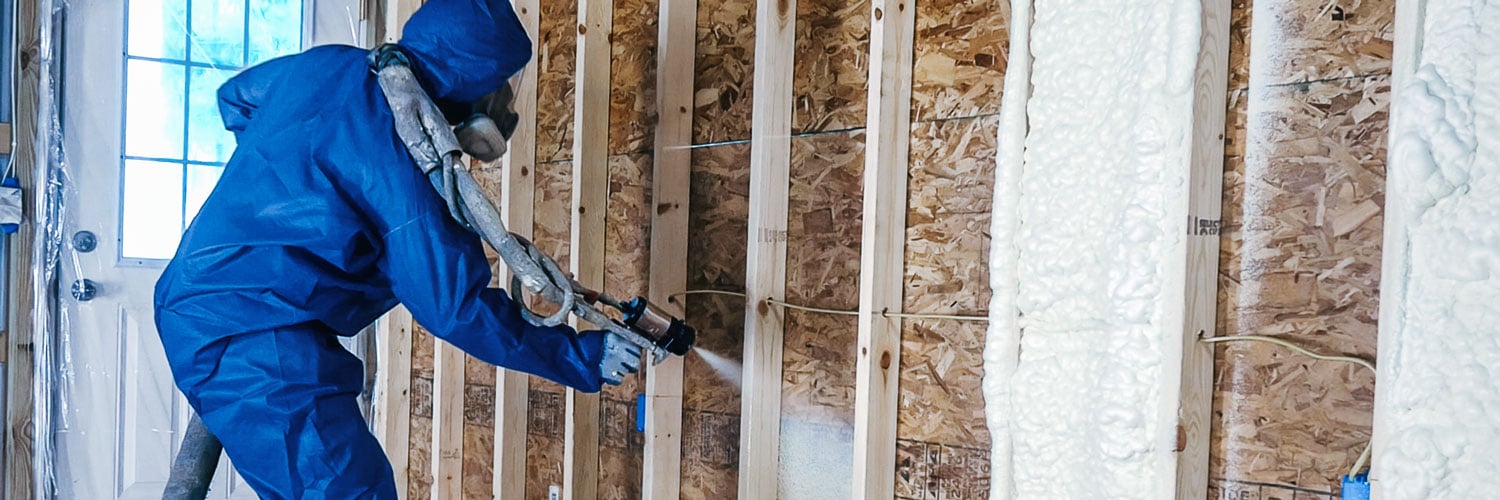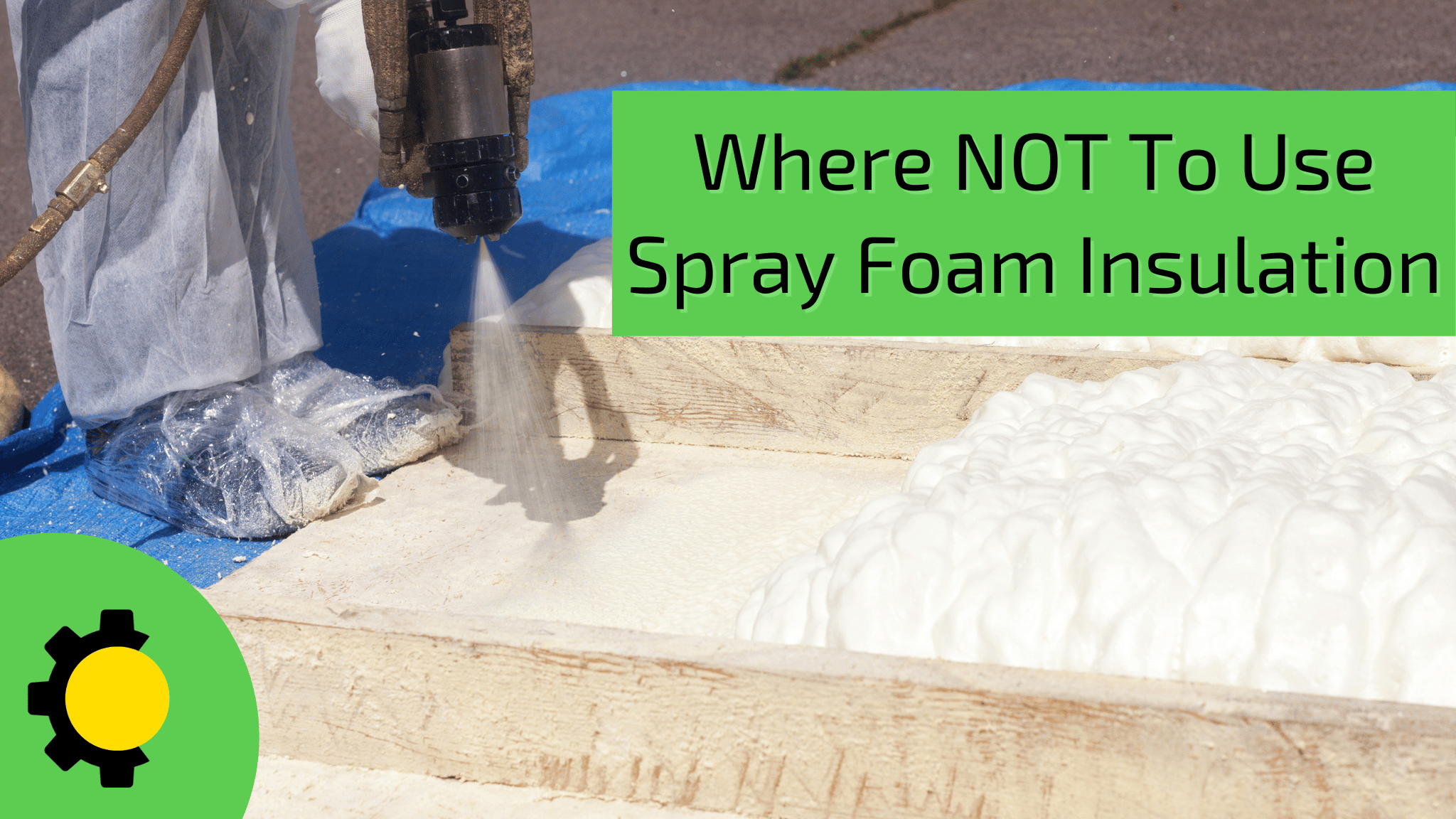Top Applications of Spray Foam for Residential and Commercial Properties
Top Applications of Spray Foam for Residential and Commercial Properties
Blog Article
Spray Foam: The Ultimate Remedy for Air Sealing and Insulation
Spray foam insulation has actually arised as a leading option for effective air securing and thermal insulation, providing an one-of-a-kind combination of buildings that set it apart from typical techniques. Understanding the complete extent of its benefits, setup processes, and comparisons with various other insulation kinds is crucial for making informed decisions.
What Is Spray Foam?
Spray foam is a flexible insulation material that incorporates the principles of air securing and thermal resistance to boost power performance in buildings. Composed largely of polyurethane or other similar substances, spray foam is used as a fluid that broadens upon contact with surfaces, creating a solid, continuous layer of insulation. This one-of-a-kind building allows it to fill up spaces, cracks, and spaces that standard insulation materials might forget, offering a remarkable air seal.
There are 2 major sorts of spray foam: open-cell and closed-cell. Open-cell spray foam is lighter and much more flexible, offering excellent sound absorption and a reduced R-value per inch - Spray Foam. In contrast, closed-cell spray foam is denser, providing a higher R-value, moisture resistance, and included architectural honesty to developing components
The application procedure usually involves customized devices, guaranteeing a smooth application that complies with different substrates, including metal, timber, and concrete. This versatility makes spray foam suitable for both brand-new buildings and retrofitting existing structures. Its capability to produce an impermeable obstacle considerably adds to decreasing power consumption and boosting interior air top quality, therefore making it a preferred selection amongst home owners and contractors alike.
Benefits of Spray Foam Insulation
One of one of the most substantial advantages of spray foam insulation is its outstanding capability to develop a constant air obstacle, which efficiently lessens energy loss. Unlike conventional insulation materials, spray foam broadens to fill up fractures and gaps, making sure that air leak is dramatically lowered. This characteristic not just boosts power effectiveness yet likewise results in reduce energy costs in time.
Furthermore, spray foam insulation supplies exceptional thermal resistance, adding to an extra steady indoor setting. Its high R-value per inch enables for reliable insulation in confined rooms, making it ideal for attic rooms, wall surfaces, and crawl spaces. Furthermore, the moisture-resistant residential properties of spray foam aid prevent mold and mildew and mold development, promoting healthier living conditions.
Another essential advantage of spray foam insulation is its sound-dampening qualities (Spray Foam). It efficiently lowers sound transmission in between spaces, producing a quieter and much more comfy home environment. The longevity of spray foam likewise stands apart, as it does not droop or clear up with time, keeping its performance throughout its life expectancy
How Spray Foam Functions
Understanding exactly how spray foam insulation functions is crucial for valuing its performance in air sealing and thermal resistance. Spray foam insulation includes two primary parts: isocyanate and polyol material. When these components are combined, they undergo a chain reaction that creates the material to broaden swiftly, producing a thick foam that loads fractures, spaces, and tooth cavities.
As the foam expands, it sticks to surfaces, creating a closed seal that substantially minimizes air infiltration. This particular makes spray foam insulation extremely effective at preventing drafts and dampness infiltration, which can lead to power loss and damages in time. Additionally, the closed-cell variant of spray foam offers superior thermal resistance as a result of its rigid framework, successfully decreasing heat transfer.
The special residential properties of spray foam permit it to adjust to uneven surfaces, guaranteeing detailed coverage and a smooth obstacle. Because of this, spray foam insulation not only improves power effectiveness yet additionally adds to enhanced interior air quality by lowering the accumulation of pollutants and allergens. Eventually, comprehending the auto mechanics behind spray foam emphasizes its duty as a premium choice for insulation and air securing in both industrial and domestic applications.
Installation Refine Review

Before setup, the space has to be properly cleansed and prepped, ensuring that surface areas are without wetness, dirt, and debris. This step is vital due to the fact that pollutants can jeopardize adhesion and overall performance. When the location is prepared, the application entails blending both elements of the spray foam, which broadens upon get in touch with and loads gaps properly.
Trained professionals need to carry out the setup, utilizing specific tools to guarantee consistent protection and ideal thickness. Security safety measures, including using safety gear and making sure correct air flow, are imperative throughout this process. After application, the foam usually treatments promptly, forming a solid barrier that boosts power effectiveness.
Comparing Spray Foam to Traditional Insulation
When examining insulation alternatives, spray foam insulation stands apart in contrast to traditional products such as fiberglass and cellulose. One of the key benefits of spray foam is its remarkable air securing abilities. Unlike fiberglass and cellulose, which can allow air seepage, spray foam broadens upon application, filling voids and holes to develop an airtight seal. This causes enhanced energy performance, as much less heated or cooled air escapes the home, bring about lower utility costs.
Additionally, spray check that foam gives a greater R-value per inch than traditional insulation kinds, providing even more effective thermal resistance in a thinner profile. This particular is particularly helpful in areas with limited tooth cavity depth. Spray foam is immune to dampness and mold growth, which can be a significant problem with cellulose and fiberglass, specifically in humid environments.
Nevertheless, spray foam insulation generally lugs a higher ahead of time expense than its typical counterparts. Homeowners need to consider this preliminary investment against long-term energy cost a fantastic read savings and efficiency benefits. Inevitably, while both insulation types serve their purpose, spray foam emerges as an advanced remedy for modern insulation requirements, specifically in terms of air securing and thermal efficiency.

Final Thought
In summary, spray foam insulation represents a very efficient solution for attaining optimal air sealing and thermal resistance. Its one-of-a-kind properties, including moisture resistance and sound dampening, make it ideal for various applications in both new building and constructions and retrofitting tasks (Spray Foam). Although the preliminary prices may be greater compared to traditional insulation materials, the long-lasting benefits, such as significant energy cost savings and enhanced interior air high quality, warrant the financial investment and highlight its worth in modern-day building techniques.
Spray foam insulation has actually arised as a leading solution for efficient air sealing and thermal insulation, providing a special mix navigate to this website of properties that establish it apart from standard approaches.Spray foam is a flexible insulation material that incorporates the concepts of air securing and thermal resistance to enhance energy efficiency in buildings.When examining insulation alternatives, spray foam insulation stands out in comparison to traditional products such as fiberglass and cellulose. Ultimately, while both insulation kinds serve their function, spray foam emerges as an extra innovative remedy for modern-day insulation demands, especially in terms of air securing and thermal efficiency.
In recap, spray foam insulation represents a very reliable option for achieving optimum air sealing and thermal resistance.
Report this page